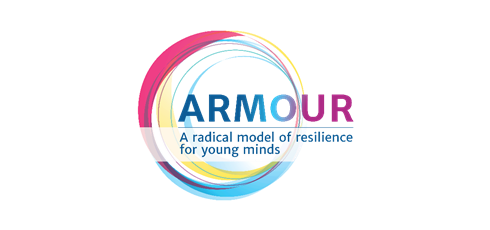 https://www.synyo.com/wp-content/uploads/SYNYO-NEWS-featured-image-NEW01007705EN.png
400
459
leo
https://www.synyo.com/wp-content/uploads/2017/09/synyo-logo.png
leo2025-01-01 10:47:112025-02-10 10:48:51BOND: Outcomes in Advancing Education, Tolerance and Heritage Preservation to combat Antisemitism
https://www.synyo.com/wp-content/uploads/SYNYO-NEWS-featured-image-NEW01007705EN.png
400
459
leo
https://www.synyo.com/wp-content/uploads/2017/09/synyo-logo.png
leo2025-01-01 10:47:112025-02-10 10:48:51BOND: Outcomes in Advancing Education, Tolerance and Heritage Preservation to combat AntisemitismARMOUR

ARMOUR: Creating public awareness through research-based training methods, tools and online materials
The ARMoUR project aims to address societal polarization caused by extremist ideologies. As part of the project, the partners have developed an experimental lab methodology and tools. These tools, which have been piloted in 6 European partner countries and are provided online for the sustainability of the project, propose an interdisciplinary model of learning for helping communities to build resilience to ideologies and behaviours of violent extremism.
Polarization is both a mental construct and a multidimensional phenomenon generated by the inability of multi-variable social actors to properly address sensitive issues in the public space like those motivated by cultural, economic and political discourses, narratives within the current migration context, hate speech (off and online), radicalization, violence or crime among others. This complex disruptive phenomenon may be produced by a large variety of social actors, like social-sub groups (minorities, communities, excluded entities), political activists opposing the governing institutions, or even public institutions and mainstreaming parties, which react irrationally and in a disproportionate matter to provocations or legitimate grievances. The final result of an improper management of these dialectics may be the disruption of the socio-political cohesion within the social fabric.
Despite the efforts and investments that Europe has allocated to counter-terrorism policies and interventions over the past decades, practitioners within Member States yet continue to find it challenging to:
- measure the effectiveness of prevention and counter-measures
- provide moderate identity strengthening tools which work for a diverse range of individuals in the community
- efficiently employ new media tools to strengthen moderate voices
- provide effective alternative narratives to extremist and polarizing ones.
ARMoUR has conducted research to close this gap by providing practitioners with experimental workshops tailored to the needs of the community and vulnerable groups. These workshops or labs are based on the following objectives that provide a benefit for the target audience:
- Uptake of the knowledge on the dynamics of violent extremism, the social role its diverse actors play and how they enact their route to violent radicalization;
- Uptake of new means for identification and information-sharing between the parties involved;
- Uptake of new means for the public to challenge extremists at the level of society;
- Uptake of support for practitioners and the public in order to enable them to take over the public discourse;
- Uptake of new educational initiatives that equip actors involved in empowering vulnerable groups to fight social polarisation, violent extremism and radicalization.
Experimental labs
For reaching these impacts, the project organized a series of experimental labs. The labs represented a safe place where participants experimented with alternative ways of responding to push and pull factors of social polarisation and extremism. The main focus was placed on internalising and further facilitating learning of practical, hands-on strategies and personal skills of conflict resolution, peace building, critical thinking, anger management, proportionate response etc. After several internal testing rounds, the labs were cascaded in 6 countries (Italy, Malta, Greece, Spain, Romania, and the Netherlands) and therefore provided the opportunity to continuously improve the model according to findings from previous laboratories.
Due to the COVID-19 pandemic, parts of the labs were digital while others were implemented on-site or in a hybrid format. Each lab accommodated 14-21 participants with different backgrounds and had a duration of 8 hours. Each lab session was followed by individual practices and active feedback collection transmitted to the facilitators.
The experimental lab model has been promoted online as well as onsite thus providing effective alternative narratives of self-value and community building. After the implementation of the labs and the optimization of the material, the experimental lab presentation as well as the guidelines were uploaded on the www.firstlinepractitioners.com platform as part of the ARMOUR Toolkit.
Links
https://www.firstlinepractitioners.com
Keywords
Radicalisation, extremis, experimental laboratory, training




